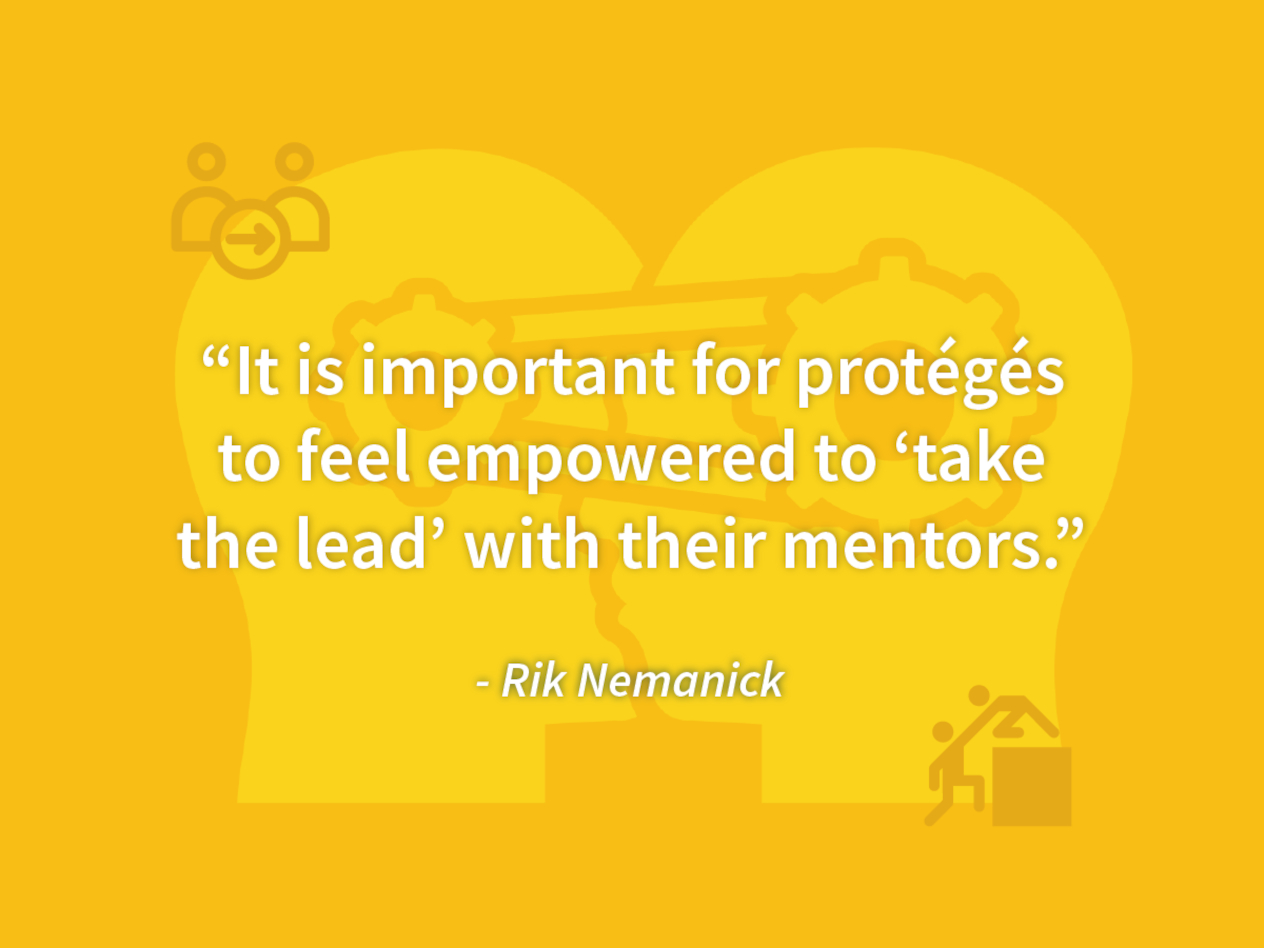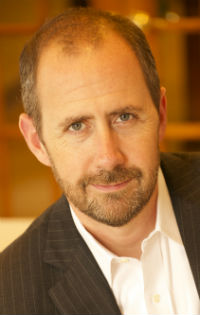How do you get the most from your mentor? Part 3 in a series
- October 24, 2018
- By Guest Author
- 3 minute read


Rik Nemanick, a Washington University adjunct instructor, wrote this for the Olin Blog. He is the author of The Mentor’s Way: Eight Rules for Bringing Out the Best in Others and is leading an upcoming daylong workshop on mentoring and leader development at Olin. This is the third in a series of Olin Blog posts on mentoring. Check out part one and part two if you missed them.
This blog post concludes my discussion about mentoring as a vehicle to extend and enhance learning. The series of posts is based on interviews with seven alumni from the School of Engineering and Olin Business School who have been mentors for students at Washington University. In my prior blog posts on mentoring, I brought together their ideas to build a definition of what a mentor was and explored what mentors do to help bring out the best in others.
In this post, I wanted to know what they suggest people do to get the most out of having a mentor.
It is important for protégés to feel empowered to “take the lead” with their mentors. Recognize that leaders around you are willing to help. “Don’t hesitate to reach out to people,” said Dante Cannarozzi, BSAS ‘01/MSCS ‘03. “I think you’ll discover most people are very receptive to being asked for advice.”
Sally Roth, EMBA ‘95, added to that advice, encouraging protégés to “be prepared to own the relationship. That is, it is incumbent upon the protégé, not the mentor, to build and maintain a trusting relationship.”
Mike Ferman, BSBA ’68, suggested protégés “set expectations with your mentor upfront. Identify how you should both communicate with each other and how frequently. Do not expect them to do things for you.” Haroon Taqi, BSCS ’90/MSCS ’95, encouraged protégés to “reach out to them and follow through to make sure that the meetings happened.”
Of course, you should also “know what you want to optimize” about yourself, observed Mark Pydynowski, BSBA ’04. He added that “the best mentors have expensive time; do not waste it by being unprepared.” That is why it is important for protégés to “chart a course” for their development journey. Think about where you see yourself in three years and get your mentor’s help in identifying what you want to learn or improve to get there.
Once you figure out what you want to learn, it helps to “open your mind” to learning. David Murphy, EMBA ’18, said that “you need to listen for your internal biases and turn them off. You’re actively seeking out growth, which may require you to learn to identify and focus on your weaknesses.”
Ferman added that protégés need to be “open to change and listening to new ideas. Being open and transparent with them about your goals and objectives, and my fears and concerns.” Finally, to truly grow and learn when working with a mentor, it helps to “stretch yourself” and take some risks. Murphy suggested that “getting out of your comfort zone and out of your own way are crucial steps in true growth.”
One thing to make sure you do is thank your mentors and let them know the impact they had on you. Taqi said that “in the end, I made sure I thanked them for their time.” Mentoring is a gift that you cannot repay. What you can do is make sure that the time the mentor invested in you made a difference. And, you can look for someone you can mentor and “pay it forward.”
“Mentorship & Leader Development,” a workshop presented by Olin Business School Executive Education, will be Nov. 6 from 8 a.m. to 4 p.m. Get more details and register. Nemanick is author of The Mentor’s Way.
Media inquiries
For assistance with media inquiries and to find faculty experts, please contact Washington University Marketing & Communications.
Monday–Friday, 8:30 to 5 p.m.
Sara Savat
Senior News Director, Business and Social Sciences
